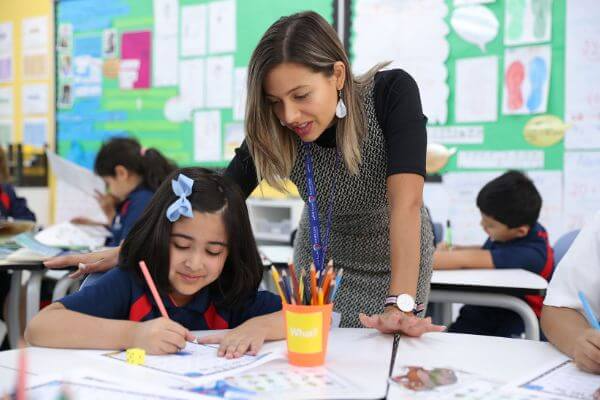
Nursery primary schools in Qatar play a critical role in fostering early literacy skills in young children. By introducing reading and language activities, nursery schools support children’s language development, vocabulary acquisition, and overall literacy skills. Let’s explore the importance of developing early literacy in nursery schools and the positive impacts it has on children’s cognitive and linguistic abilities.
Language acquisition:
Nursery schools provide a rich linguistic environment that supports children’s language acquisition. Through exposure to a variety of spoken and written language, children develop vocabulary, sentence structure, and communication skills. Engaging in conversations, storytelling, and language-focused activities helps children build a strong foundation for language development.
Phonological awareness:
Phonological awareness refers to the understanding of the sounds and patterns of spoken language. Nursery schools can incorporate activities that promote phonological awareness, such as rhyming games, sound recognition exercises, and wordplay. Developing phonological awareness is essential for later reading and spelling skills.
Vocabulary expansion:
Reading books and engaging in language-rich activities in nursery schools expose children to new words and concepts. This exposure helps expand their vocabulary, enabling them to express themselves more effectively and understand the world around them. Encouraging children to ask questions, explore books, and engage in discussions supports their vocabulary development.
Print awareness:
Introducing print awareness in nursery schools helps children understand the basic conventions of written language. Nursery schools can incorporate activities that familiarize children with books, letters, and words. By learning to recognize letters, understanding that print carries meaning, and following along as books are read, children develop print awareness, which is essential for later reading and writing skills.
Storytelling and imagination:
Nursery schools can promote storytelling and imaginative play, which enhance children’s language skills and creativity. Engaging in storytelling activities, puppet shows, and dramatic play allows children to express themselves, develop narrative skills, and expand their imagination. These activities contribute to their overall language and literacy development.
Reading aloud:
Reading aloud to children is a fundamental practice in nursery schools. Regular read-aloud sessions expose children to a variety of stories, genres, and language structures. It helps develop their listening skills, comprehension, and love for reading. Reading aloud also models proper intonation, pronunciation, and fluency, which children can emulate as they begin to read independently.


